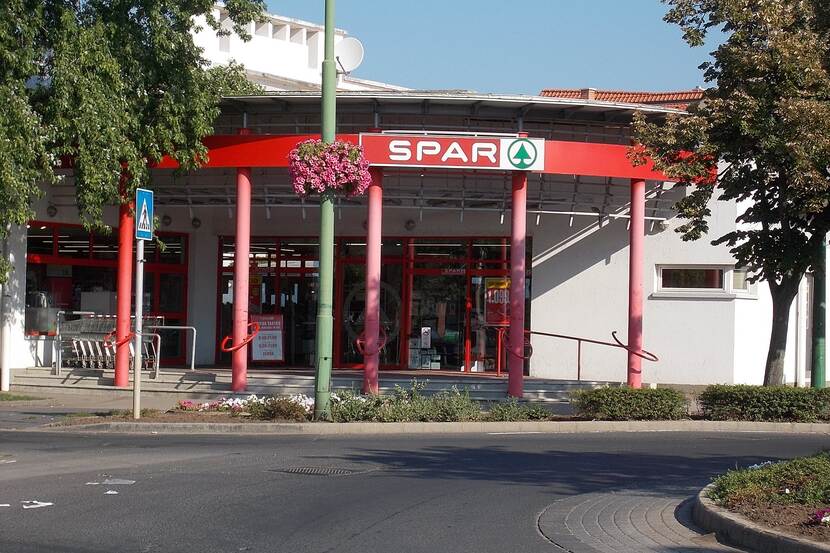Hungary: Retail chains calling on the European Commission to intervene
The appeal for the EC to intervene in grocery commerce, complicated times for honey production, declining livestock figures and issues in the cereal trade - Our weekly briefing on agriculture, food and nature news in Hungary.

Retail chains turn to European Commission
The price cap policies appear to be the last straw for foreign-backed retail chains in Hungary, which are now calling on the European Commission to intervene in the Hungarian market due to the government’s various policies in the past period.
“It is simply impossible to operate profitably in a sustainable way under the conditions imposed by the Hungarian government,” one source told DailyNews Hungary. The media report that Auchan, Tesco, Spar, Penny Market, Aldi and Lidl all share these concerns.
According to Portfolio.hu, there are multiple reasons why these companies are now turning to the Commission.
One reason is the recent extension of the price caps in Hungary.
Another is the decision from last December creating a new obligation for chains with an annual turnover of more than €242 million to supply food products 48 hours before the expiry date without compensation (which was accompanied by an increase in the special retail tax rate from 2.5 to 2.7 percent).
The third reason is the government’s decision taken this spring to increase the rate of the special tax for these operators from 2.7% to 4.1%, citing crisis management and the improvement of the budgetary situation (for operators with a turnover of between €72 million and €242 million, the rate of 0.4% was increased to 1%, while the rate remained unchanged for the category below this level).
An anonymous source from one of the chains told 24.hu that they believe that “what is happening is the forcing out of certain actors from the market.”
24.hu also mentioned then-governmental commissioner János Lázár's interview with Portfolio last November, in which “he openly outlined the squeezing out of foreign-backed retail chains”, and the statement by Márton Nagy, Minister of Economic Development, in May this year that the share of domestic ownership in the construction industry should be increased.
Controversial year for apiculture, honey expensive again
Honey now costs on average €15 in groceries and €8.5 at farmers’ markets in Hungary. Agrárszektor.hu reports that 2022 has been a great year for the production of acacia honey, however, for other varieties the situation is different between the west and east of the country.
Basically, due to the weather this summer, Transdanubia (Western Hungary) saw the best season for honey production in the past several years. In Eastern Hungary, however, the drought led to the worst year for honey production in a long while.
Input costs, low producer prices and very low procurement from industry also make the situation harder.
According to the domestic apiculture alliance, due to soaring food inflation, honey producers were not able to raise prices in a way that would compensate for their increased costs and honey prices only increased by 10-20%.
Livestock figures declining
A recent analysis has found that the populations of all main livestock varieties have fallen in the summer of 2022. The main reasons are the usual: Increasing input and production costs, increasing prices of transport and energy, increasing feed prices due the summer drought and the war.
According to the latest figures by the Research Institute for Agricultural Economics (AKI), 214 thousand tons of pigs and 230 thousand tons of chickens have been slaughtered at slaughterhouses in Hungary in the first half of 2022. Compared to 2021, slaughterhouse figures in all livestock categories decreased. This means 5.5% fewer heads of cattle, 6.5% fewer pigs. The decrease was 12.8% for poultry. Out of this, the decrease of the number of geese was 35% and the number of ducks, 49%. Only the slaughtering of turkeys remained at the same level.
Problems in the cereal trade
Many producers have reported that they were unable to sell their produce, with buying operators rejecting offers on the grounds of export barriers and quality problems. However, according to the Ministry of Agriculture, there is no economic obstacle to the purchase of cereals in Hungary.
According to the Ministry of Agriculture, they have taken up the issue of the stability of the cereals market and has reviewed the situation in terms of both exports and quality. With regard to the notification requirement for cereals and oilseeds exports, which has been introduced to ensure close monitoring of movements, the Ministry reports that the processing of export notifications is running smoothly with the shortest possible lead times. In no case has the State had to make use of the pre-emption option. The rapid turnaround time for processing notifications ensures that they do not affect the functioning of the domestic market and do not affect the economic conditions for the purchase of cereals.